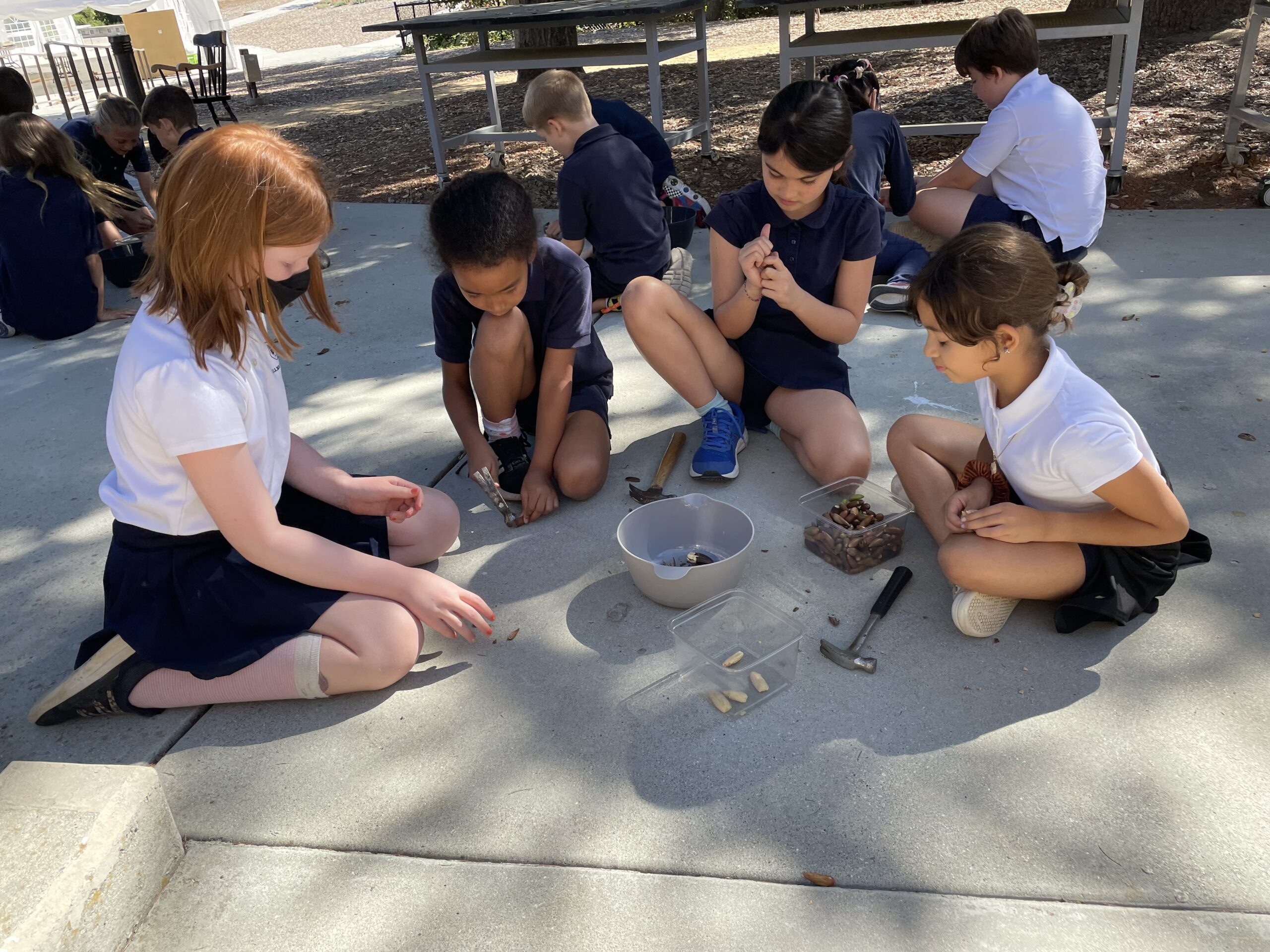“I see – it’s like a frog! The mother lays eggs and it goes to tadpole then all the way to frog. Then it goes over and over. It never ends!”
4th Grade Scientists this week are studying the life cycle of the oak tree, through reading, video, discussion, observations on campus, and connection-making about organisms whose life cycles they already know. Looking at the cycle with a partner, students noted new terms, like germination or tap root, and also generated questions like, “I don’t know if it starts from fruit or seed…wait, how can it ever start? Like, how did the first oak tree come into the world??”
I don’t know if it starts from fruit or seed…wait, how can it ever start? Like, how did the first oak tree come into the world??
Using short, time-lapse videos and a visual life cycle in their science notebooks, their teacher guided them in using new terms, as well as knowledge they have previously learned, to answer many of their questions: “We’ve learned a lot about leaves, what’s the whole point of trees having leaves?” In their observations of oak trees on campus, students connect what they learn and wonder to the living things right outside their classroom door: “We can see where the baby acorns are on the tree – we’ll go outside and I’ll show you where they start to grow.”
Finally, students learn new knowledge through peer presentations of Science Menu projects. This week, students presented to their peers a board game they had designed and drawn on poster-board at home, all about oaks. Players move an acorn as their marker along a series of steps, answering trivia questions about the oak to move ahead or having to return to an earlier stage. Students played a short round, then shared questions and compliments for the game designers. Menu projects like these challenge students to pursue further exploration and creation with science at home and provide them with opportunities to present their ideas and expertise to an authentic audience back at school, building not just knowledge of key concepts about science – but a community of scientific practitioners.

